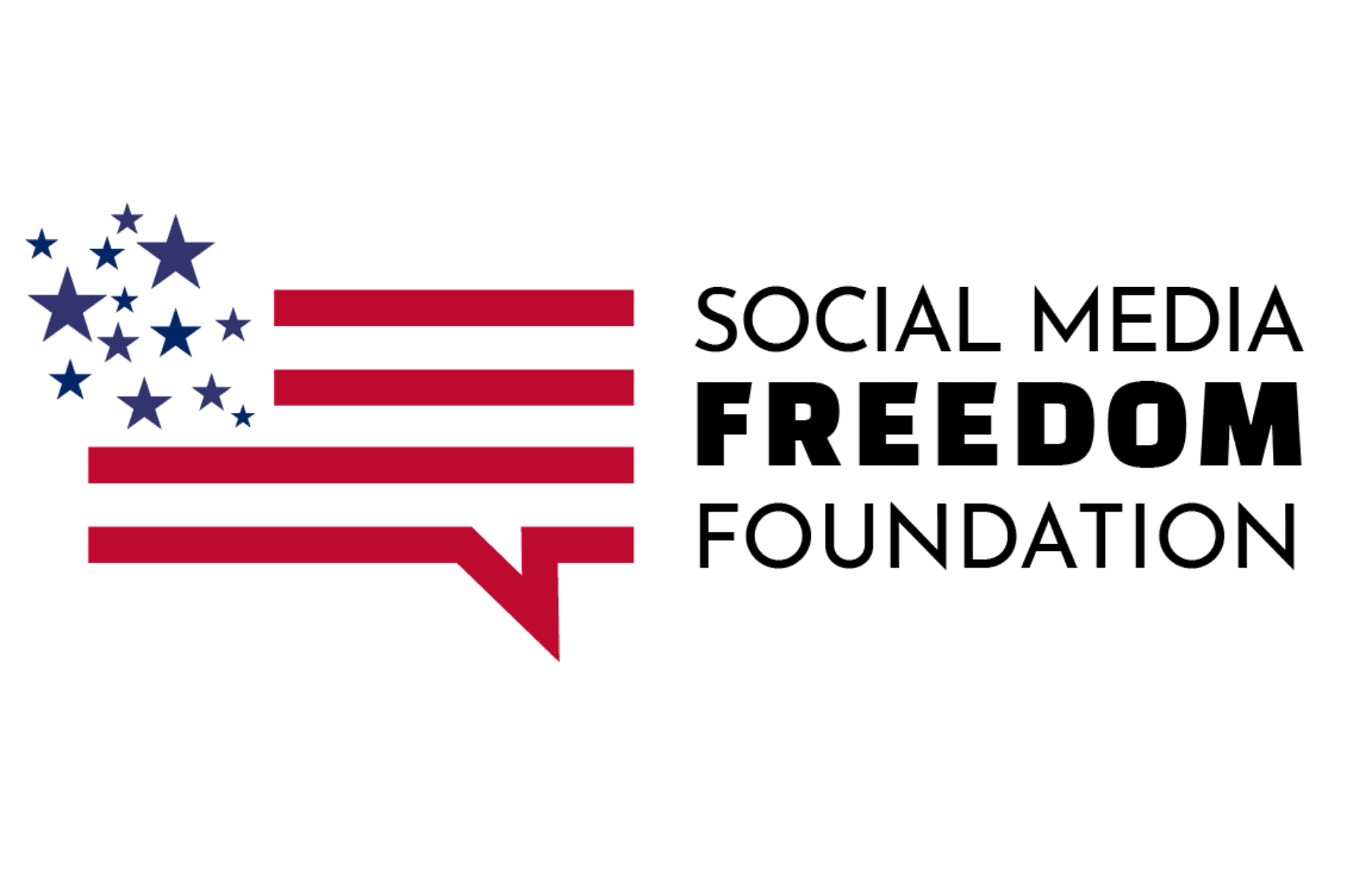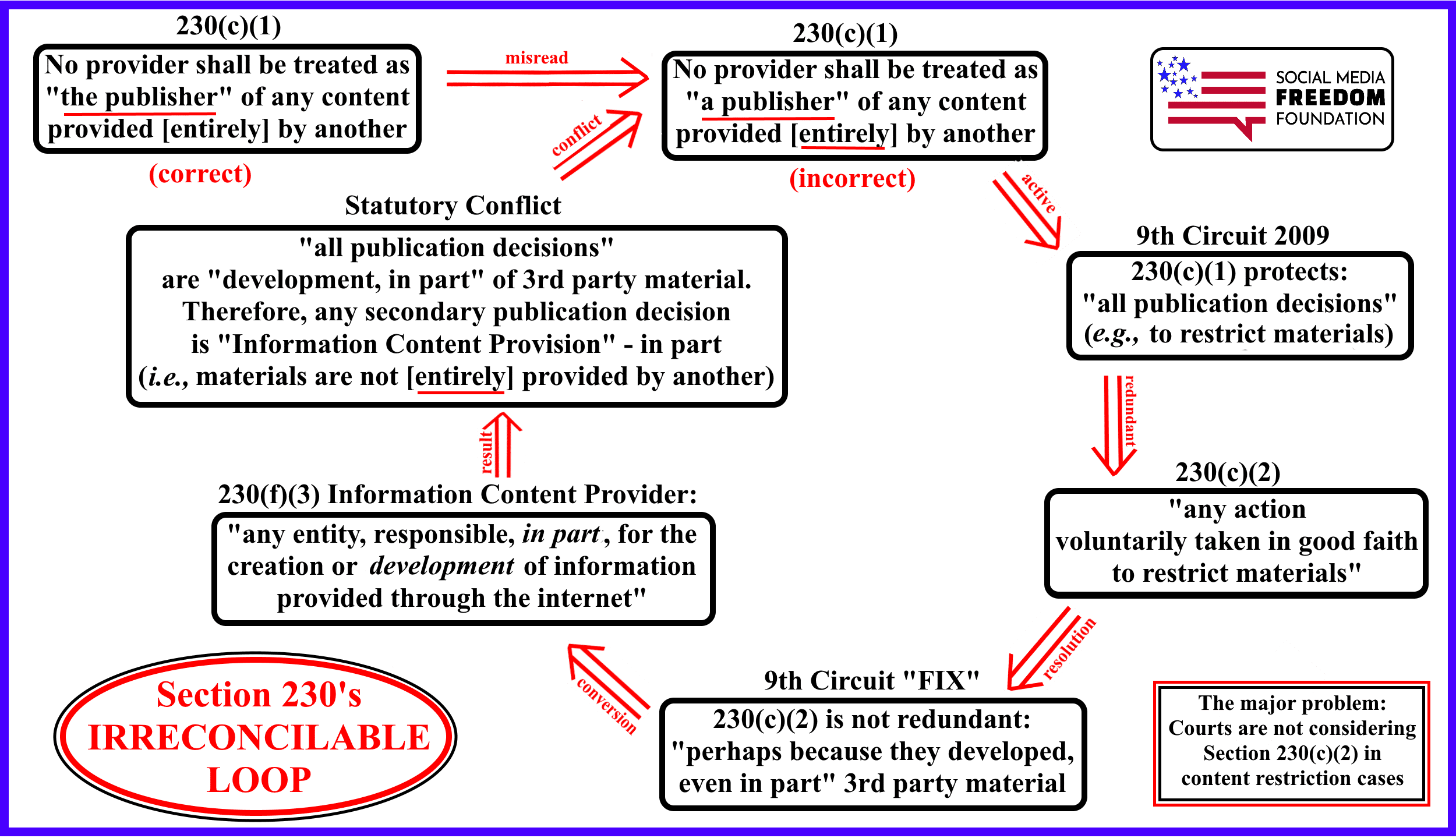CONGRESS CANNOT CONSTITUTIONALLY DELEGATE THE POWER TO RESTRICT LAWFUL SPEECH UPON ANY AGENT, WHETHER OFFICIAL OR PRIVATE, BECAUSE IT IS NOT A POWER THAT THE CONGRESS CAN RIGHTFULLY EXERCISE ITSELF.
RESEARCHED AND PREPARED
BY:
JASON FYK AND DAVE MORGAN
118th CONGRESS H.R. __________
1st Session
Legislative Intent: To rearticulate the text in a way that realigns the court’s application of Title 47, United States Code, §230 of the Communications Decency Act (“CDA”) in line with the legislature’s original intent, the interests of the public, and the Constitution of the United States of America.
IN THE HOUSE OF REPRESENTATIVES
January _______, 2023
M. ______ _________________ introduced the following bill which was referred to House Committee on Energy and Commerce.
A BILL
To realign the limited federal immunity (the “Good Samaritan” – predicated protection) of Title 47, United States Code, Section 230 (the “CDA”) with its original purpose(s), namely, to protect the public from proscribed – unlawful material, facilitate online free speech, due process, and to restore accountability of an interactive computer service provider that does not act in good faith, in the public’s interests, and / or for the good of others. To clarify the ambiguous text of the statute, prevent unlawful, arbitrary and capricious censorship, promote uniform enforcement, and provide a series of voluntary obligations and procedural safeguards to maintain liability protections, while also respecting the Constitutional Rights of both the Interactive Computer Service Provider and Users.
Be it enacted by the Senate and House of Representatives of the United States of America in Congress assembled,
SECTION 1. SHORT TITLE.
This Act may be cited as the “Online Freedom Act” (“OFA”).
SECTION 2. SCOPE OF PROTECTION.
Section 230 of the Communications Decency Act of 1996 (Title 47, United States Code, Section 230) is amended—
(c) PROTECTION FOR “GOOD SAMARITAN” BLOCKING AND SCREENING OF OFFENSIVE UNLAWFUL MATERIAL.
(1) TREATMENT OF PUBLISHER OR SPEAKER INACTIVE PROVIDER OR USER
No provider or user of an interactive computer service shall be treated as the specific publisher or speaker who created or developed any information that is entirely provided by another information content provider.
(2) ACTIVE PUBLISHER OR SPEAKER CIVIL LIABILITY PROTECTION
No provider or user of an interactive computer service shall be held liable on account of—
(A) any action, voluntarily and uniformly undertaken in good faith, to restrict access to or availability of material that the provider or user considers to be obscene, lewd, lascivious, filthy, excessively violent, harassing, or otherwise objectionable, whether or not such material is constitutionally protected reasonably considers unlawful; or
(B) any action taken to enable or make available to other information content providers users the technical means to self-restrict access to any material, whether or not such material is constitutionally protected. described in paragraph (1).[1]
(d) OBLIGATIONS OF INTERACTIVE COMPUTER SERVICE
A provider of interactive computer service shall, at the time of entering an agreement with a customer for the provision of interactive computer service and in a manner deemed appropriate by the provider, notify such customer that parental control protections (such as computer hardware, software, or filtering services) are commercially available that may assist the customer in limiting access to material that is harmful to minors. Such notice shall identify, or provide the customer with access to information identifying, current providers of such protections.
An interactive computer service is accountable to the public, with its actions subject to judicial review. An interactive computer service shall engage in reasoned decision-making, and courts are directed to set aside any decision that is arbitrary or capricious, not in good faith, or not that of a “Good Samaritan.”
-
An interactive computer service shall, at the time of entering an agreement with a customer for the provision of interactive computer service, (a) notify such customer that parental control protections are commercially available (such as computer hardware, software, or filtering services) that may assist the parents or guardians in limiting access to material that is harmful to minors; or (b) make parental control protections directly available to the customer.
-
To maintain liability protection, the provider or user of an interactive computer service who takes any action to restrict access to or availability of another publisher’s materials, shall make all reasonable effort in good faith to abide by at least the following:
(A) Act as a “Good Samaritan;”
(B) Make all reasonable effort to protect children from known harm or indecencies;
(C) Timely notify authorities of any known credible threat of violence or imminent harm;
(D) Preserve free and open debate;
(E) Establish plain and precisely stated prohibitions;
(F) Enforce prohibitions uniformly;
(G) Timely cite the specific violation when any action is taken to restrict user material;
(H) Establish a dispute resolution process and attempt to resolve disputes expeditiously;
(I) Provide equal access to services;
(J) Only authorize a United States citizen to restrict the materials of another United States citizen;
(K) Strictly maintain user privacy;
(L) Not interfere with private communications unless such communication is to a minor; and
(M) Not engage in anticompetitive, unlawful, or deceptive restrictions.
(e) Effect on other laws (No change)
(f) DEFINITIONS
As used in this section:
(1) INTERNET
The term “Internet” means the international computer network of both Federal and non-Federal interoperable packet switched data networks.
(2) INTERACTIVE COMPUTER SERVICE
The term phrase “interactive computer service” means any information service, system, or access software provider that provides or enables computer access by multiple users to a computer server, including specifically a service or system that provides access to the Internet and such systems operated or services offered by libraries or educational institutions.
(3) INFORMATION CONTENT PROVIDER
The term phrase “information content provider” means any person or entity that is directly or indirectly responsible, in whole or in part, for the creation or development of in its entirety (i.e., in whole) or to any divisible extent (i.e., in part), for the act of bringing material into existence (i.e., creation) or for any action(s) taken to solicit, expound, encourage, sponsor, make available, modify, manipulate, advance, and / or promote the growth of information provided through the Internet or any other interactive computer service, especially by deliberate effort over time (i.e., development).
(4) ACCESS SOFTWARE PROVIDER
The term phrase “access software provider” means a provider of software (including client or server software), or enabling tools that do any one or more of the following:
(A) filter, screen, allow, or disallow content;
(B) pick, choose, analyze, or digest content; or
(C) transmit, receive, display, forward, cache, search, subset, organize, reorganize, or translate content.
(5) “GOOD SAMARITAN”
The phrase “Good Samaritan” means any action taken, to render care for the good of others, in the public’s interest, in good faith, not for compensation and without gross negligence or wanton and willful misconduct.
(6) GOOD FAITH
The phrase “good faith” means an honest and sincere intention to deal openly, promptly, honestly and fairly, regardless of outcome.
(7) REASONABLY CONSIDERS
The phrase “reasonably considers” means using moderate, fair, and sound judgment to justify a decision based on intelligible and rational grounds or motive.
(8) REASONABLY CONSIDERS UNLAWFUL
The phrase “reasonably considers unlawful” means any governmentally prohibited or illicit information contrary to accepted morality or convention (e.g., cyberstalking, sex trafficking, trafficking in illegal products or activities, sexual exploitation, obscenity, defamation, fraud, incitement, fighting words, true threats, speech integral to criminal conduct, child pornography, or materials otherwise proscribed by law).
(9) PLAIN AND PRECISELY STATED PROHIBITIONS
The phrase “plain and precisely stated prohibitions” means to define an offense with sufficient definiteness and clarity that the ordinary person can understand what conduct is prohibited, in a manner that discourages arbitrary or discriminatory enforcement.
(10) VOLUNTARILY
The term “voluntarily” means acting of one’s own free will, without any direct influence, coercion, or obligation.


